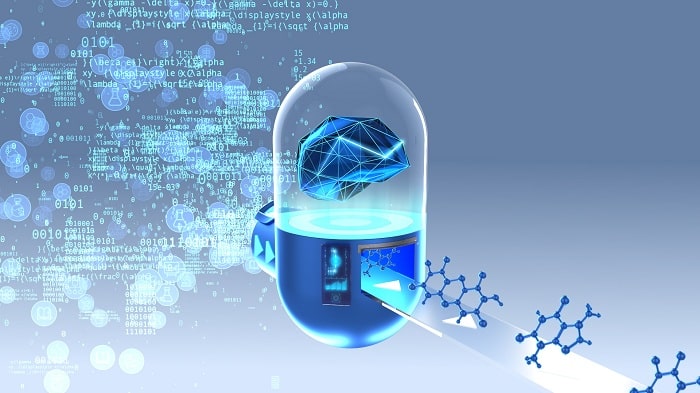AI and machine learning are revolutionary in today’s world. Technology such as SIRI and facial recognition are all products of AI and machine learning. However, AI can also save lives by facilitating the discovery of new and better drugs for various diseases and medical conditions.
AI research has untapped opportunities, especially when it comes to healthcare and drug discovery. An excellent understanding of the molecular mechanisms behind different diseases is essential for designing new drugs.
Artificial intelligence (AI), also called machine intelligence, can potentially make waves in drug discovery. But it comes with its own set of challenges. In this article, we highlight the use of AI in assisted drug discovery and development, including its ability to reduce the human workload and aid in reducing human labor in a short period.
Why is AI used in Drug Discovery?
The primary aim of drug discovery research is to recognize drugs that are beneficial to the body, which means they can help treat, prevent or even cure a particular disease.
Although there are a few distinct kinds of medications, most are little artificially blended molecules that can explicitly tie to a target molecule – typically a protein – associated with a symptom.
To discover these molecules, researchers usually dig deep into the library of molecules to recognize one with the possibility to become a drug. They also do various tests to transform this molecule into something substantial.
As of late, more objective structure-based drug design methods have become progressively normal. These do not include preliminary screening stages but still require scientists to make new drugs through design and evaluation potentially.
Since most people don’t know the specific chemical structures that will be suitable biologically to become an effective drug, the method of refining a potential compound into a drug candidate requires expenses and time.
When another drug candidate becomes successful in lab testing, it might fail during the clinical trials phase. Nonetheless, only a few drug candidates successfully go to the market after phase 1 trails.
With this in mind, it’s interesting that specialists are currently looking to the unrivaled data handling potential of AI systems as an approach to quicken and lessen the expense of finding new drugs. Statistical surveying from several firms shows that it can bring over US$70 billion in savings for the drug discovery process by 2028.
There are companies like Standigm, CytoReason, Genome Biologics that are focused on data driven and pre-clinical drug discovery. Then there is an AI tool Supp.ai which can help identify the usefulness & efficiency of herbal supplements and over the counter products such as natural Adderall nootropic or herbal dietary supplements. Herbal formulations like these are used by millions to help out with some condition or another.
The future of AI in assisted drug discovery
AI is already showing great potential in drug discovery – it facilitates the process of drug identification, aids in discovering good molecules from data libraries, and more and has great implications in different health & medical fields like healthcare, cancer, anti-aging and more .
Machine intelligence assisted drug discovery is much needed for the pharmaceutical industry’s development with a high cost of R&D that results in a minimal payoff. Nonetheless, utilizing machine learning means working together to surpass some intrinsic difficulties in the industry.
Like any recent discovery, the time objective of this can be long and lead to an uncertain outcome. Nonetheless, there is a certainty that AI will need to overcome challenges to facilitate assisted drug discovery in the short term.



















